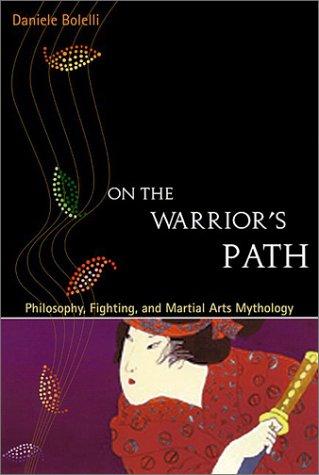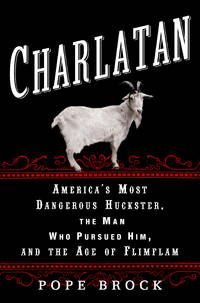 I went through a whirlwind of books recently and one of them was the very fun Moonwalking with Einstein: The Art and Science of Remembering Everything by Joshua Foer. The book received a lot of positive attention when it came out, so it was on my must-read list for awhile.
I went through a whirlwind of books recently and one of them was the very fun Moonwalking with Einstein: The Art and Science of Remembering Everything by Joshua Foer. The book received a lot of positive attention when it came out, so it was on my must-read list for awhile.
Unfortunately, it also received a ton of negative reviews. Due to the sheer volume of complaints from people who were disappointed — and in some cases “furious” — I feel obligated to mention it as a disclaimer: This book is not a self help book on improving memory. It’s not a guide for doing amazing mental feats and although you can glean a fair amount of tips and advice from the content of the book, that isn’t its aim.
Moonwalking With Einstein‘s aim is an overview of the practice of memorisation, in history and as practiced today by “mental athletes.” There are two primary story lines within the book: one following the author from “regular guy” journalist to a participant in the US Memory Championships. The other path traces the history of humanity’s use of memory and the basic science behind it, albeit on a surface level. These two sections are interwoven with each other throughout the text, giving an interesting narrative strengthened with scientific and historical information. I found them to flow well together as I progressed through the book.
Foer’s personal journey begins as a journalist covering the US Memory Championships, where he has gone expecting to see some kind of rainman olympics. He discovers, however, that many of the attendees are not savants and, in fact, most believe that anyone can do these impressive tricks with a little bit of daily practice. His suspicions of this claim are what ultimately lead him to take a wager to begin his own training to find out the truth. We follow him as he interviews and investigates other athletes, and speaks with neuroscientists who study memory and memory advocates who see great potential in maintaining the art we are losing to ever-present technology. Throughout the book, he talks with a great deal of people who are famous in the obscure realm of super memory, and if this is a topic that has interested you before, you’ve probably heard of many of them.
As we journey with the author, we also learn about how humans have used memory in the past from ancient times to recent history. Foer discusses things like oral tradition in cultures, spoken poetry and storytelling, the role that memory has played in education, the lengths some people have gone to to store knowledge, and the thousands of current books that exist on this topic which reflect human’s infatuation with the topic.
The historical coverage is what I found to be most insightful. I knew, for example, that before written language was prevalent societies relied heavily on memory, not just to transmit culture but also for every day tasks. I didn’t know, however, that when the printed word was first becoming available to the common person, that books were initially viewed as “memory aides” – not as a place to store facts in order to forget them, but as a written guide to prod you to remember things you’d already studied.
I found Foer’s discussions with educators supporting memory development in students to be especially thought-provoking. Rote memorisation is often dismissed as a pale shadow to “real” learning, and I would have agreed with this. However, many people through out the book pointed out that we require a foundation of knowledge to build our own ideas and draw influence from, and that the broader that foundation, the more equipped we are to become creative or wise people. I thought that was an important consideration and it shifted my perspective a bit.
If one judges Moonwalking with Einstein based on the merits of what it is rather than what one wants it to be, I think the book is enjoyable and worth the read. You may not be capable of memorising decks of cards once you turn the final page, but you will have gained some insight into the function and amazing potential of memory.


 Thea Cooper and Arthur Ainsberg’s book Breakthrough: Elizabeth Hughes, the Discovery of Insulin, and the Making of a Medical Miracle is about medical science’s triumph over insulin-dependent diabetes. Breakthrough follows one of America’s first recipients of insulin, Elizabeth Hughes, but the book is only partly about her personal story.
Thea Cooper and Arthur Ainsberg’s book Breakthrough: Elizabeth Hughes, the Discovery of Insulin, and the Making of a Medical Miracle is about medical science’s triumph over insulin-dependent diabetes. Breakthrough follows one of America’s first recipients of insulin, Elizabeth Hughes, but the book is only partly about her personal story. The Rebbe’s Army: Inside the World of Chabad-Lubavitch is a look at one of the largest and perhaps best-known branches of Orthodox Judaism. It is written by journalist Sue Fishkoff who, although an outsider to the sect, manages to be insightful and respectful but still completely honest. There are very few books on modern-day Hassidic Judaism, and even fewer good ones, but The Rebbe’s Army is one that stands out. I would like to think this book would be fascinating even to people without a Jewish background, or perhaps more so, as they enter the topic without bias.
The Rebbe’s Army: Inside the World of Chabad-Lubavitch is a look at one of the largest and perhaps best-known branches of Orthodox Judaism. It is written by journalist Sue Fishkoff who, although an outsider to the sect, manages to be insightful and respectful but still completely honest. There are very few books on modern-day Hassidic Judaism, and even fewer good ones, but The Rebbe’s Army is one that stands out. I would like to think this book would be fascinating even to people without a Jewish background, or perhaps more so, as they enter the topic without bias. Charlatan: America’s Most Dangerous Huckster, the Man Who Pursued Him, and the Age of Flimflam by Pope Brock is an engaging historical tale about medical quackery from the early 20th century. I enjoyed the brief mention this story had received in Mary Roach’s
Charlatan: America’s Most Dangerous Huckster, the Man Who Pursued Him, and the Age of Flimflam by Pope Brock is an engaging historical tale about medical quackery from the early 20th century. I enjoyed the brief mention this story had received in Mary Roach’s  The Great Influenza by John M. Barry is a fascinating look at the influenza pandemic that rocked the world in 1918. This terrifying virus killed between 3-6% of the world’s population between June 1918 and December 1920, and infected almost 30%. It is a history book, but it is heavy in the science. It is a thoroughly detailed book, providing information and statistics from around the globe during the outbreak, although the book gives the most time to those in the United States.
The Great Influenza by John M. Barry is a fascinating look at the influenza pandemic that rocked the world in 1918. This terrifying virus killed between 3-6% of the world’s population between June 1918 and December 1920, and infected almost 30%. It is a history book, but it is heavy in the science. It is a thoroughly detailed book, providing information and statistics from around the globe during the outbreak, although the book gives the most time to those in the United States. My intense fondness for the HBO Original Series The Wire inspired me to pick up the book Homicide: A Year on the Killing Streets by David Simon. Although Homicide more directly influenced the NBC show of the same name (which admittedly I’ve never seen), it is what started Simon down the path that eventually resulted in the creation of my favourite TV series. As the head writer for The Wire, it seemed reasonable I would enjoy his first book on the real life Baltimore homicide detectives.
My intense fondness for the HBO Original Series The Wire inspired me to pick up the book Homicide: A Year on the Killing Streets by David Simon. Although Homicide more directly influenced the NBC show of the same name (which admittedly I’ve never seen), it is what started Simon down the path that eventually resulted in the creation of my favourite TV series. As the head writer for The Wire, it seemed reasonable I would enjoy his first book on the real life Baltimore homicide detectives.